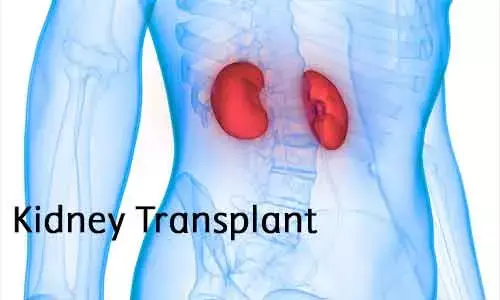- Home
- Medical news & Guidelines
- Anesthesiology
- Cardiology and CTVS
- Critical Care
- Dentistry
- Dermatology
- Diabetes and Endocrinology
- ENT
- Gastroenterology
- Medicine
- Nephrology
- Neurology
- Obstretics-Gynaecology
- Oncology
- Ophthalmology
- Orthopaedics
- Pediatrics-Neonatology
- Psychiatry
- Pulmonology
- Radiology
- Surgery
- Urology
- Laboratory Medicine
- Diet
- Nursing
- Paramedical
- Physiotherapy
- Health news
- Fact Check
- Bone Health Fact Check
- Brain Health Fact Check
- Cancer Related Fact Check
- Child Care Fact Check
- Dental and oral health fact check
- Diabetes and metabolic health fact check
- Diet and Nutrition Fact Check
- Eye and ENT Care Fact Check
- Fitness fact check
- Gut health fact check
- Heart health fact check
- Kidney health fact check
- Medical education fact check
- Men's health fact check
- Respiratory fact check
- Skin and hair care fact check
- Vaccine and Immunization fact check
- Women's health fact check
- AYUSH
- State News
- Andaman and Nicobar Islands
- Andhra Pradesh
- Arunachal Pradesh
- Assam
- Bihar
- Chandigarh
- Chattisgarh
- Dadra and Nagar Haveli
- Daman and Diu
- Delhi
- Goa
- Gujarat
- Haryana
- Himachal Pradesh
- Jammu & Kashmir
- Jharkhand
- Karnataka
- Kerala
- Ladakh
- Lakshadweep
- Madhya Pradesh
- Maharashtra
- Manipur
- Meghalaya
- Mizoram
- Nagaland
- Odisha
- Puducherry
- Punjab
- Rajasthan
- Sikkim
- Tamil Nadu
- Telangana
- Tripura
- Uttar Pradesh
- Uttrakhand
- West Bengal
- Medical Education
- Industry
Blood test may predict risk of organ rejection in kidney transplant patients

Washington, DC -- A new blood test may predict transplant failure risk in CKD patients. The blood marker may help physicians predict which patients who recently underwent kidney transplantation are at risk of experiencing organ rejection several years later. The findings appear in an upcoming issue of Journal of the American Society of Nephrology.
Immunosuppressive medications are essential for keeping a kidney transplant recipient's immune system from attacking the transplanted organ, but in many cases, rejection eventually occurs. Predicting kidney transplant failure may help clinicians intervene before it's too late, but this requires a better understanding of individual patients' immune responses.
By analyzing blood samples from 284 kidney transplant recipients who were followed for a median of 8.3 years, a team led by Nicolas Degauque, PhD (Université de Nantes and CHU Nantes, in France) found that the composition of immune cells called CD8+ memory T cells 1 year after kidney transplantation was linked with a patient's subsequent risk of kidney transplant failure. The investigators also found that specific CD8+ memory T cells called effector memory expressing CD45RA cells play a major role in initiating multiple immune-related processes that lead to kidney transplant failure.
"The identification of at-risk kidney transplants is based on clinical metrics already measured in the standard of care of patients and on the quantification of blood subsets of CD8+ cells that could be easily transferable in the routine monitoring of kidney transplant recipients," said Dr. Degauque. "The findings are important because early identification of at-risk kidney transplant recipients is critical to allow physicians to adapt their care by either increasing the frequency of patient monitoring or by introducing new therapeutics adapted to patients' own risks."
The results also indicate that effector memory expressing CD45RA cells may be promising targets for new treatment or prevention strategies against organ rejection.
For more details click on the link: http://dx.doi.org/10.1681/ASN.2019080847
Hina Zahid Joined Medical Dialogue in 2017 with a passion to work as a Reporter. She coordinates with various national and international journals and association and covers all the stories related to Medical guidelines, Medical Journals, rare medical surgeries as well as all the updates in the medical field. Email: editorial@medicaldialogues.in. Contact no. 011-43720751
Dr Kamal Kant Kohli-MBBS, DTCD- a chest specialist with more than 30 years of practice and a flair for writing clinical articles, Dr Kamal Kant Kohli joined Medical Dialogues as a Chief Editor of Medical News. Besides writing articles, as an editor, he proofreads and verifies all the medical content published on Medical Dialogues including those coming from journals, studies,medical conferences,guidelines etc. Email: drkohli@medicaldialogues.in. Contact no. 011-43720751


